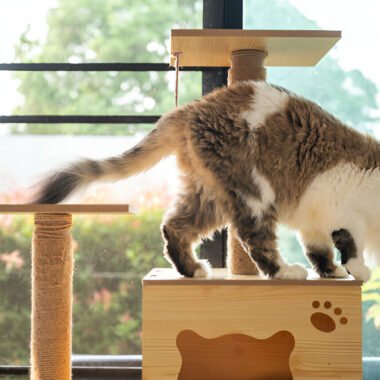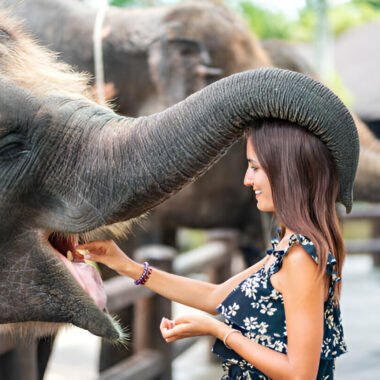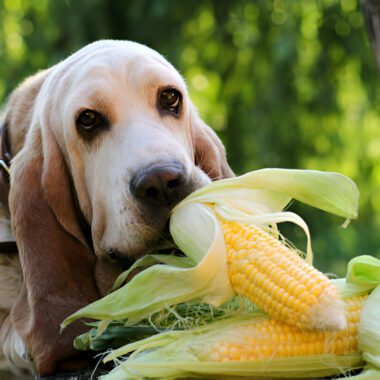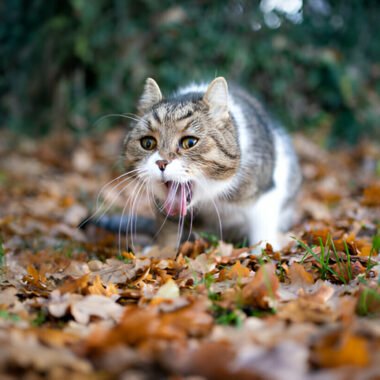Table of Contents
Dapple Dachshunds are a captivating variation of the beloved Dachshund breed, known for their unique and striking coat patterns. In this article, we’ll explore everything you need to know about these delightful dogs, from their history and physical traits to their temperament and care needs. Whether you’re considering adopting a Dapple Dachshund or simply want to learn more about this fascinating breed, read on for a comprehensive guide.
History and Origin
Origins of the Dachshund Breed
Dachshunds, affectionately known as “wiener dogs” due to their elongated bodies, originated in Germany in the 15th century. Bred to hunt badgers, rabbits, and other burrowing animals, their name literally means “badger dog” in German. Their small size, elongated bodies, and keen sense of smell made them excellent hunters.
Emergence of the Dapple Pattern
The dapple pattern, characterized by lighter spots or patches on a darker coat, emerged through selective breeding. This pattern can appear in various coat colors, making each Dapple Dachshund uniquely beautiful. The dapple gene is a dominant trait, meaning it only takes one parent with the gene to produce dappled offspring.
Physical Characteristics
Size and Build
Dapple Dachshunds, like their non-dapple counterparts, come in three sizes: standard, miniature, and toy. Standards typically weigh between 16-32 pounds, miniatures under 11 pounds, and toys weigh even less. They have a long, muscular body with short legs, which contributes to their distinctive silhouette.
Coat Colors and Patterns
The dapple pattern can appear in various colors, including black and tan, red, chocolate, and more. The defining feature is the lighter patches or spots on the darker base coat. This unique pattern can vary widely, making each Dapple Dachshund’s appearance one-of-a-kind.
Eye Color Variations
Dapple Dachshunds often have striking eye colors. While many have the typical dark brown eyes, dapples can also have blue or “wall” eyes, where one eye is blue and the other is brown. This is due to the merle gene, which affects pigmentation in both the coat and eyes.
Personality and Temperament
General Temperament
Dachshunds are known for their lively and spirited nature. They are curious, playful, and sometimes a bit stubborn. Despite their small size, they have a big personality and are often quite brave, sometimes to the point of being fearless.
Dapple-Specific Traits
While their core temperament aligns with the broader Dachshund breed, Dapple Dachshunds may exhibit slight variations in behavior due to their unique genetics. They can be particularly energetic and may require a bit more mental stimulation to keep them happy and well-behaved.
Socialization Needs
Early socialization is crucial for Dapple Dachshunds. Exposing them to different people, pets, and environments helps ensure they grow into well-rounded adults. Socialization can reduce the likelihood of developing behavioral issues like excessive barking or aggression.

Health and Lifespan
Common Health Issues
Like all Dachshunds, dapples are prone to certain health issues, including intervertebral disc disease (IVDD) due to their long spine. Regular check-ups and maintaining a healthy weight can help mitigate these risks. They may also be prone to eye issues, particularly if they have blue eyes.
Lifespan Expectations
With proper care, Dapple Dachshunds can live between 12-16 years. Their longevity depends on factors like genetics, diet, exercise, and regular veterinary care. Monitoring their health closely can contribute to a longer, happier life.
Importance of Regular Vet Check-ups
Regular vet visits are essential to catch potential health problems early. Vaccinations, dental care, and screenings for common issues like heart disease or diabetes should be part of their routine care.
Grooming and Care
Coat Care
Dapple Dachshunds have short to medium-length coats that require regular brushing to minimize shedding and keep their coat healthy. Long-haired variants need more frequent grooming to prevent tangles and mats.
Dental Hygiene
Good dental care is crucial for Dachshunds. Regular brushing and providing dental chews can help prevent periodontal disease, which is common in small breeds.
Nail Trimming
Regular nail trimming is important to prevent overgrowth and discomfort. If you’re uncomfortable trimming your dog’s nails, a professional groomer or vet can help.
Exercise and Activity
Exercise Requirements
Despite their small size, Dapple Dachshunds are active dogs that need regular exercise. Daily walks and playtime help keep them physically and mentally stimulated. Without enough exercise, they may become bored and develop destructive behaviors.
Ideal Activities for Dapple Dachshunds
These dogs enjoy activities that engage their hunting instincts, such as playing fetch or participating in scent work. Puzzle toys and interactive games can also provide mental stimulation.
Playtime Tips
Incorporate a variety of toys and activities to keep playtime interesting. Rotate toys regularly to maintain their interest and provide challenges that keep them engaged.

Diet and Nutrition
Nutritional Needs
A balanced diet is essential for maintaining your Dapple Dachshund’s health. High-quality dog food that meets their nutritional requirements is a must. Consult your vet to determine the best diet for your dog’s age, size, and activity level.
Feeding Schedule
Establish a regular feeding schedule to help manage their weight and digestive health. Typically, two meals a day for adults is sufficient, while puppies may require more frequent feedings.
Foods to Avoid
Avoid feeding your Dapple Dachshund human foods that are toxic to dogs, such as chocolate, grapes, onions, and garlic. Always check with your vet before introducing new foods into their diet.
Training and Obedience
Training Tips
Start training your Dapple Dachshund early using positive reinforcement techniques. Consistency is key, as Dachshunds can be stubborn and independent. Patience and persistence will pay off.
Common Challenges
House training can be challenging due to their strong-willed nature. Crate training can be an effective method. Additionally, their hunting instincts can make recall training difficult, so focus on building a strong bond and using high-value rewards.
Positive Reinforcement Techniques
Reward-based training methods work best with Dapple Dachshunds. Use treats, praise, and play to reinforce good behavior. Avoid harsh punishment, as it can damage their trust and exacerbate behavioral issues.
Living Environment
Ideal Living Conditions
Dapple Dachshunds can adapt to various living situations, whether in an apartment or a house with a yard. They are indoor dogs and thrive in environments where they can be close to their human family.
Adjusting to Different Environments
Gradual introduction to new environments helps them adjust without becoming anxious. Provide a safe space, like a crate or a designated area, where they can retreat if they feel overwhelmed.
Indoor vs. Outdoor Living
While they enjoy outdoor playtime, Dapple Dachshunds should primarily live indoors due to their size and vulnerability to extreme temperatures. Supervised outdoor time is great, but ensure they are safe from predators and harsh weather.

Breeding and Genetics
Understanding Dapple Genetics
The dapple pattern results from a dominant merle gene. Breeding two dapple Dachshunds can result in double dapples, which may have serious health issues, including blindness and deafness. Responsible breeding practices are essential to avoid these risks.
Responsible Breeding Practices
Ethical breeders prioritize the health and well-being of their dogs. They avoid breeding two dapple Dachshunds together and conduct health screenings to ensure the puppies are healthy.
Recognizing Ethical Breeders
Look for breeders who are transparent about their practices, provide health guarantees, and allow you to visit their facilities. They should also be knowledgeable about the breed and provide ongoing support to puppy buyers.
Adoption and Purchasing
Where to Adopt or Buy
Adopting from a shelter or rescue organization is a great option. If you choose to buy from a breeder, research thoroughly to find a reputable one. Breed-specific rescues can also be a good resource.
Questions to Ask Breeders
Ask breeders about their breeding practices, health screenings, and the puppy’s parents. Ensure they provide proper socialization and care for their puppies.
Preparing for a New Pet
Before bringing a Dapple Dachshund home, prepare your living space with necessary supplies like a crate, food, toys, and grooming tools. Establish a routine to help your new pet settle in comfortably.
Dapple Dachshund in Pop Culture
Famous Dapple Dachshunds
Dapple Dachshunds have made appearances in movies, TV shows, and social media. Their unique appearance and charming personality make them stand out.
Representation in Media
From famous pets of celebrities to viral internet stars, Dapple Dachshunds have captured the hearts of many. Their distinctive look and playful nature make them popular in various media.
Common Myths and Misconceptions
Debunking Myths
One common myth is that Dapple Dachshunds are more aggressive than other Dachshunds. This is not true; their temperament is similar to the broader breed, influenced more by training and socialization than coat pattern.
Understanding the Realities
Understanding the breed’s true nature helps prospective owners make informed decisions. Dapple Dachshunds are loving, intelligent, and require dedicated care, just like any other pet.
Conclusion
Dapple Dachshunds are a delightful and unique variation of the Dachshund breed, known for their striking appearance and spirited personality. Understanding their history, characteristics, and care needs ensures they live happy, healthy lives. Whether you’re a current owner or considering adding one to your family, these charming dogs are sure to bring joy and companionship.
FAQs
What makes a Dapple Dachshund unique? Dapple Dachshunds are distinguished by their unique coat pattern, featuring lighter patches on a darker base, and often have striking eye color variations.
Are Dapple Dachshunds good with children? Yes, with proper socialization, Dapple Dachshunds can be good with children. They are playful and affectionate, though supervision is always recommended with young kids.
How often should I groom my Dapple Dachshund? Regular grooming depends on their coat type. Short-haired varieties need weekly brushing, while long-haired ones require more frequent grooming to prevent tangles.
What health issues are common in Dapple Dachshunds? Common health issues include intervertebral disc disease (IVDD), eye problems, and dental issues. Regular vet check-ups and a healthy lifestyle can mitigate these risks.
How can I find a reputable Dapple Dachshund breeder? Look for breeders who are transparent about their practices, conduct health screenings, and provide health guarantees. Visiting their facilities and asking about the puppy’s parents and care is also important.











